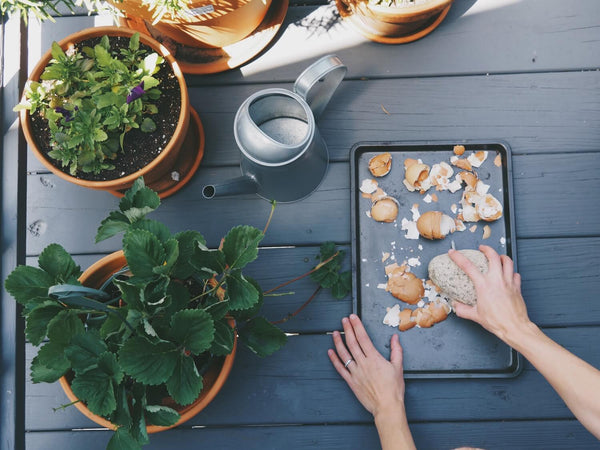There's nothing more frustrating than peeling a hard-boiled egg and losing half of the white to those stubbornly stuck shells. If you've ever wrestled with the peeling process only to find yourself with a batch of raggedy-looking whites that just won't do for your deviled egg platter, these hard-boiled egg peeling tips are for you!
Tips for Peeling Hard-Boiled Eggs
- Choose older eggs: Older hard-boiled eggs are easier to peel because the pH level of the egg whites increases over time, reducing the bond between the egg whites and the inner shell membrane.
- Steam your eggs: Steaming eggs instead of boiling them can make the shells easier to remove. The steam penetrates the shell more evenly, helping to separate the egg white from the membrane.
- Use an ice bath: Submerging your hard-boiled eggs in an ice bath right after cooking stops the cooking process and helps the egg white shrink away from the shell, making it easier to peel.
- Peel underwater: Peeling hard-boiled eggs underwater allows water to flow between the egg white and the shell, further loosening the shell and making it easier to remove.
Why are fresh, hard-boiled eggs so hard to peel?
The fresher the hard-boiled eggs, the harder they are to peel. This is because the egg white or “albumen” in a fresh egg has a relatively low pH level, making it acidic. When cooked, these fresh egg whites bond strongly to the inner shell's membrane.
As an egg ages, the pH level rises and the inner membrane is less likely to bond to the albumen, so the shell peels off much easier. At Pete & Gerry's, we pride ourselves on the freshness of our eggs, which come right from our family farms. If you've ever had trouble peeling our eggs, we highly recommend either letting our eggs age for a week or two in your fridge or using the steaming method.
How to steam hard-boiled eggs
Kitchen equipment:
- A metal heatproof colander
- A pot with a fitted lid large enough to hold your colander
- A medium bowl (for ice bath)
Instructions:
- Place eggs in your colander, then place the colander in the pot.
- Fill the pot with a couple of inches of water. The water level should stay just below the base of the colander (not touching the eggs themselves).
- Place a well-fitted lid on your pot and bring the water to a boil.
- Once the water is boiling, start your timer and leave the lid on the pot to keep the steam from escaping (if it looks like you are going to run out of water, carefully add a little extra warm water to the pot as needed to make sure steam production doesn't cease).
- Let the hard-boiled eggs steam for 12 minutes* before removing them from the pot and placing them in an ice bath (8-9 minutes for slightly jammy eggs).
Using an ice bath for hard-boiled eggs
Peeling hard-boiled eggs underwater

How to store hard-boiled eggs
Storing peeled hard-boiled eggs properly is crucial to maintain their freshness and safety. Here are some tips to help you store them effectively:
-
Refrigerate Promptly: After peeling, refrigerate the hard-boiled eggs within two hours to prevent bacterial growth.
-
Use an Airtight Container: Place the peeled eggs in an airtight container to prevent them from drying out and to protect them from absorbing other odors in the fridge.
-
Store in Water: For optimal freshness, place the peeled eggs in a bowl of water and cover the bowl with plastic wrap or a lid. Change the water daily to keep the eggs fresh.
-
Use a Damp Paper Towel: Alternatively, you can store peeled eggs in a damp paper towel inside an airtight container. This helps maintain moisture and prevents the eggs from drying out.
-
Label with Date: Mark the container with the date you peeled the eggs. Peeled hard-boiled eggs can be safely stored in the refrigerator for up to one week.
-
Avoid Freezing: Freezing peeled hard boiled eggs is not recommended as the whites can become rubbery and watery when thawed.
-
Keep at a Consistent Temperature: Store the eggs in the main part of the refrigerator, not in the door, to ensure they stay at a consistent, cold temperature.









